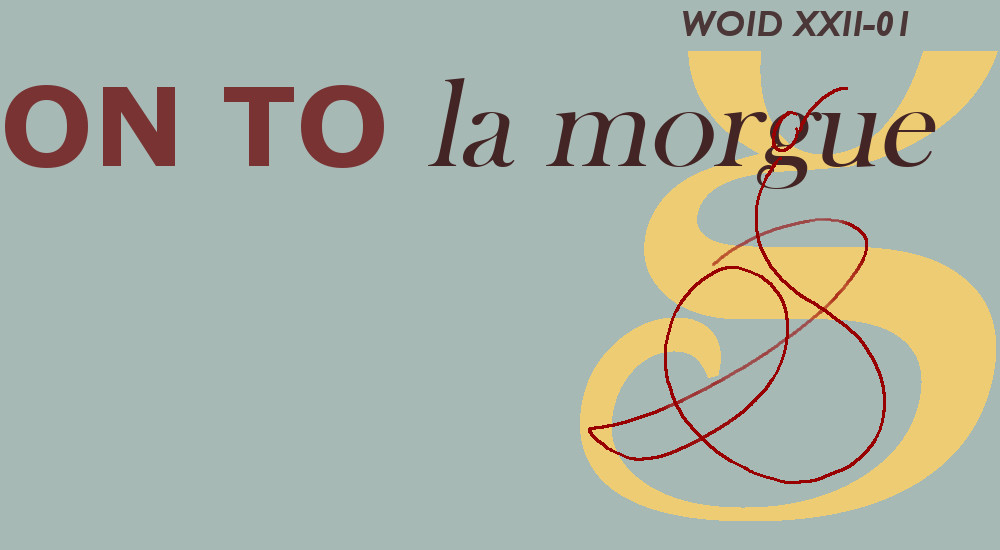

I]
Why does this all seem so familiar? The French, who have a sophisticated political shorthand, would call the present situation of the Democratic Party a “Night of August Fourth” kind of thing and everyone would understand the reference to the night of August 4th, 1789, when the French nobility decided to get egalitarian the way the Democratic Machine has decided of late to get “progressive.”
August 4th was the night a few weeks after the fall of the Bastille when one after another the French aristocracy marched up to the rostrum of the National Assembly to solemnly renounce amidst embraces and bisou-bisou the rights and privileges that had defined them; until they didn’t, of course. The Night of August 4th turned out to be so much Kabuki, except it was Kabuki of a specific kind. The same can be said of the mighty progressive promises of reform from the Democratic Party Machine: one step forward, two steps back.
What I’ve seen is happening no doubt in any number of Party cells. In this instance it concerns the Austrian branch of the Democratic Party—yes, there is such a thing, it groups about a thousand members, and it has very little connection with the hundreds of thousands of Americans who vote from abroad, let alone the millions of Americans abroad who can’t be bothered: Americans abroad are overwhelmingly progressive and the membership of Democrats Abroad is overwhelmingly corporate, uninterested in questions of public policy and obsessed with tax breaks for themselves. “Resistance,” or whatever they call it these days, is merely the means to get voters to promote DA's corporatist agenda. Democrats Abroad and the voters come together every four years when DA administers the Democratic Presidential Primaries. Otherwise there is very little connection between the two; over the past few months Democrats Abroad-Austria decided they intend to keep it that way, only more so.
So much so, in fact, that DA-ATs Executive Committee couldn’t be bothered to notify their own membership of the meetings in which changes to the by-laws were proposed:
DA-AT By-Laws 6.6. Meetings of all committees shall be open to all members of the organization. Committee meetings shall, when possible, be announced in advance to the general membership.
Changes would curtail members’ ability to contest an election for the Executive Committee; would violate privacy laws on voter data according to US and EU laws; and would ensure that primaries conducted by Democrats Abroad-Austria continue to contravene the most basic, internationally accepted criteria for a fair election. Not to worry: the whole process was vetted by DA-AT’s “Counsel,” an Executive Committee member who has a PhD in German. Of course Trump's latest counsel has a PhD in Medieval History; DA-AT's "counsel" has no legal qualifications whatsoever: this could qualify as a felony in most states.
On March 11, 2018 the changes were introduced and
passed unanimously at a General Assembly of DA-AT after limited
discussion and one opposing vote, my own. Afterwards one member
explained to me that she would have been prepared to vote down the
changes if only I hadn’t been so rude. Therefore, and in order to
effort to help our friends with low thresholds of integrity I have
deleted all the expletives from the following summary of my discussion.
You can supply your own.
Therefore, and in order to
effort to help our friends with low thresholds of integrity I have
deleted all the expletives from the following summary of my discussion.
You can supply your own.
II]
DA-AT By-Laws 3.8: Removal of [sic] Membership. Members who, by their actions, demonstrate that they no longer subscribe to the principles of the Democratic Party and of Democrats Abroad may be removed from membership by a two-thirds (2/3) vote of the members of the Executive Committee.)
Translation: The Executive Committee grants itself the authority to purge voter rolls in Democratic presidential primaries. Lest anyone suppose that 3.8 merely grants the Executive Committee the authority to remove members of the Committee itself in the fashion of the Politburo and other mild regimes, it was explained at the March 11 meeting that “members” means any member of Democrats Abroad—in other terms any American voter who might have the temerity to believe he or she was entitled to vote in a presidential primary.
As a rule, Americans living abroad vote by absentee ballots in all general elections and in state primaries. The one exception is the Democratic presidential primary, where the vote from abroad is directly administered by Democrats Abroad, an official state party within the Democratic Party. On March 5, 2016 during the administration of the Presidential Primaries, I observed that my ballot was not secret—in fact my choice was carefully scrutinized by an official before it was accepted. A few months afterwards, when I pointed this out at a General Assembly meeting of DA-AT I was dismissed with explanations along the line of, “this is how we’ve always done it.” When on March 11, 2018 I pointed this out again I was told by two members of the Executive Committee that this procedure was necessary in order to avoid voter fraud—and here I thought fantasies of voter fraud were something fostered only by Republicans. Fear of voter fraud, I was made to understand, is the rationale behind:
DAT By-Laws 7.9 In accord with Democratic Party and DA-CCEP, there is no secret ballot voting in DA-AT elections. All ballots cast must include such personal identification and contact data (i.e., name, phone, e-mail) as to allow for validation that the voter is a member of DA-AT, and to confirm that votes are counted as the voter intended.
What’s so hard about verifying eligibility without compromising the secrecy of the ballot? You send everyone a blank envelope with a number for identification; inside that envelope is a ballot to be marked, without anything to identify the voter except the identification number. You ask the voter to fill out the ballot and return it in the envelope. Once the ballot is received and it’s been verified that the number on the outside envelope matches the number on the inside, the outside envelope is put aside in case of contestation. The numbered ballots are then counted, end of story.
Or not. Because in addition to the question of ballot secrecy the issue at hand is whether or not the DA-AT is in violation of the National Voter Registration Act, which says officials can only ask people for the minimum information necessary to demonstrate that they are eligible to vote. It is surely in violation of right-to-privacy laws in the European Union which are far more stringent than in the US; and if it was in violation back on March 11 it’s even more likely to be so after May 25, when EU regulations of right-to-privacy are considerably toughened—so much for “compliance with host-country laws and regulations,” (DA-AT Rules and Bylaws 4.3). Most troubling: not one single member present would deny that this lack of secrecy applies as well to one’s choice of candidate, giving a whole new meaning to:
DA-AT Rules and Bylaws 3.8. Members who, by their actions, demonstrate that they no longer subscribe to the principles of the Democratic Party and of Democrats Abroad may be removed, etc.
In fact, as was explained (or expostulated), it isn’t even actions that could disqualify: it's opinions. And how would one ascertain these opinions? Hey, check their ballot.
And there’s a lot more of this—for instance:
7.6 If the elections are to be held by mail or e-mail ballot, no nominations may be made from the floor.
I’m deeply flattered since I’m the only person I know who was nominated from the floor recently. The point is to make it virtually impossible for any candidate to the Executive Committee to be nominated or recalled through the concerted action of the membership. This last one’s petty, but it’s indicative.
III]
One of the common terms in use in the years leading up to the French Revolution was the noun, La morgue. Morgue originally meant the opening in a door from which the keeper could look down or in at the prisoner or petitioner. Subsequently in meant the arrogant, condescending attitude of those in privilege. In the years surrounding 1789, morgue became an attitude to be fled or discarded: progressive noblemen went in droves to watch Marriage of Figaro, delighted to distance themselves from the privilege of sexually harassing a subordinate and studiously ignoring the hypocrisy of the harasser, Count Almaviva, as if one could shed one’s privilege as one sheds an attitude. What the noblemen of '89 couldn’t see is what the Corpodems refuse to see today: that problems like sexual harassment aren’t a mere matter of readjusting personalities, they call into question the institutions that make them possible. Mozart was well aware of this, he had a long discussion over his plans for an opera with the Emperor Joseph, who himself was hoping to find support in his efforts to reduce the privileges of the Nobility. Likewise, the Night of August 4 wasn’t merely the performance of virtuous personalities, it was about the fact that their own privileges were vanishing in smoke as the peasants throughout France burned the estates and with the estates the deeds and privileges of the Nobility.
Give it up, Your Excellency.
PW
3/30/2018; latest revision 4/10/2018.

